With over ten exhibition buildings on campus, as well as our waterfront, historic boats, and more, our exhibits explore key parts of Lake Champlain maritime history. Exhibits are open to visit in-person seasonally from May to October. Want to explore exhibits online? Visit our Digital Exhibits library.
Exhibits closed:
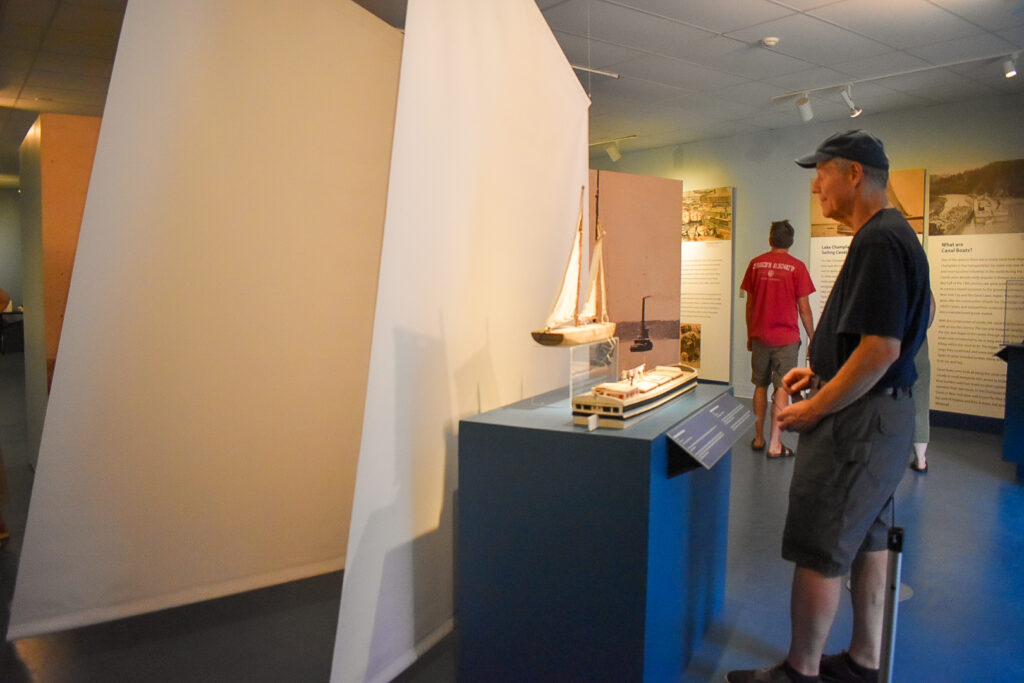
Underwater Archaeology: Diving into the Stories of People and Canal Boats on Lake Champlain
Using research and artifacts recovered from shipwrecks in Lake Champlain by underwater archaeologists, as well as interviews and interactive experiences, this new exhibit shares lesser-known local stories of canal boats and the people who worked on board.

Deep Roots, Strong Branches
Located in the Museum’s Schoolhouse Gallery, this new exhibit focuses on the complex network of people, places, relationships, and ceremonies that makes up Abenaki culture and how it connects people to the living land.
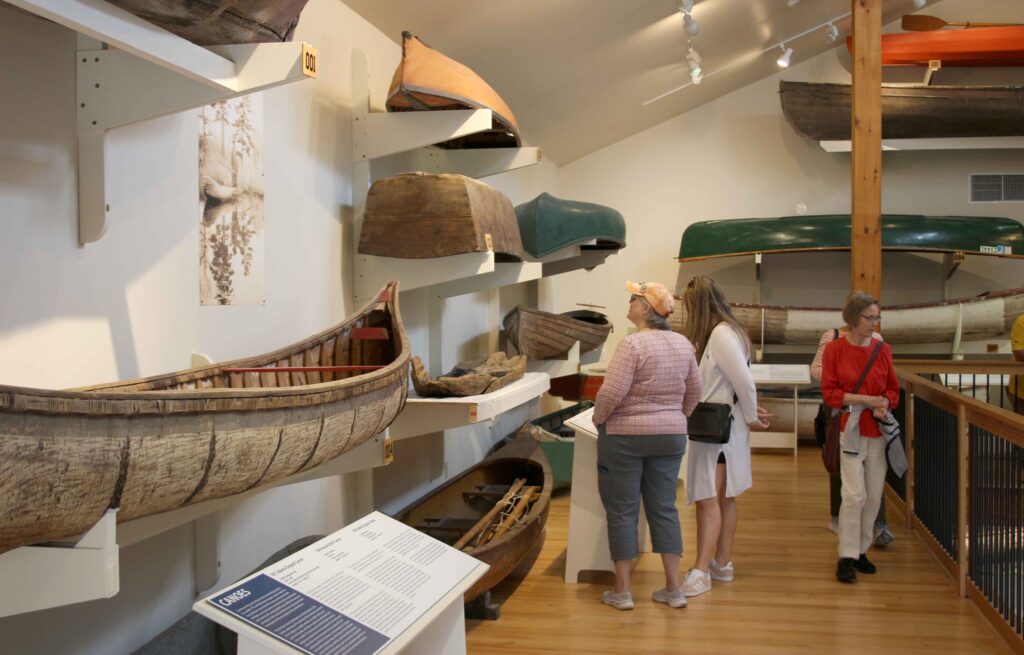
Hazelett Small Watercraft Center
Explore the history of small human-powered watercraft on Lake Champlain, featuring the towering Storm King ice yacht.
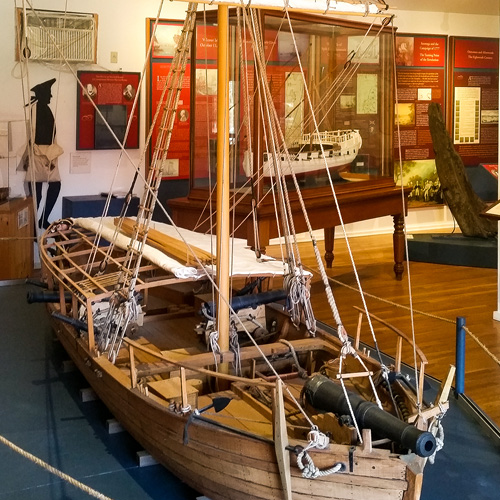
Key to Liberty: The American Revolution in the Champlain Valley
Discover how a naval battle on Lake Champlain changed the outcome of the Revolutionary War.
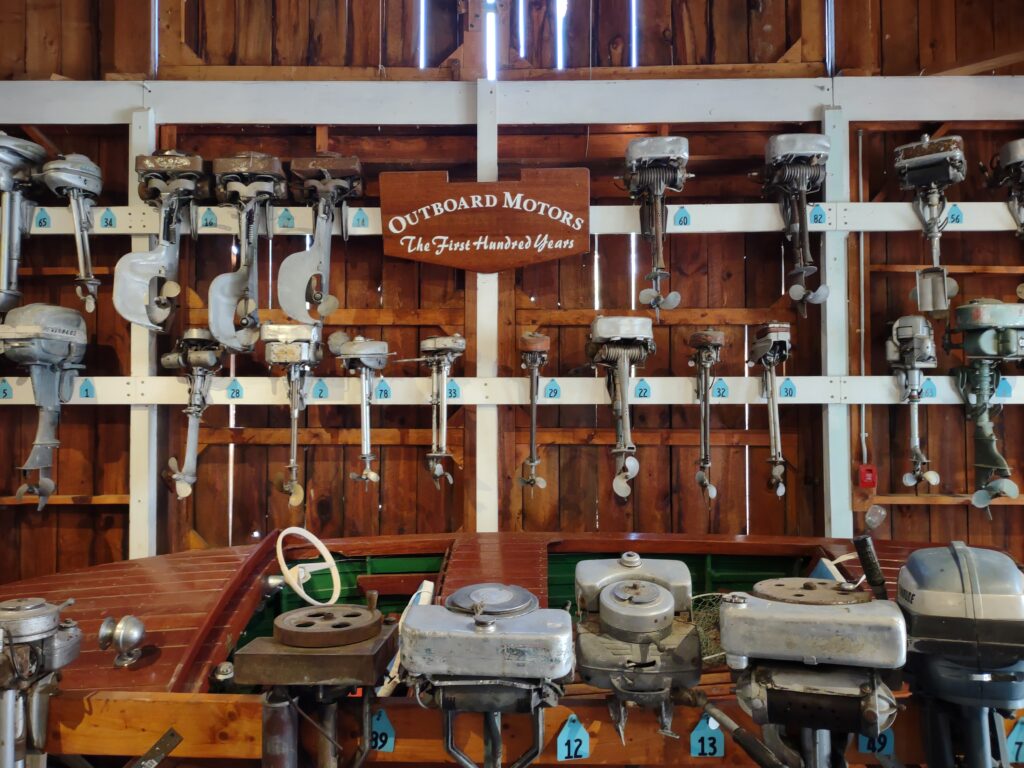
Steam to Gasoline
Step inside our collection of outboard motors and other boating objects documenting the history of how boating technology has moved from steam to gasoline powered vessels.
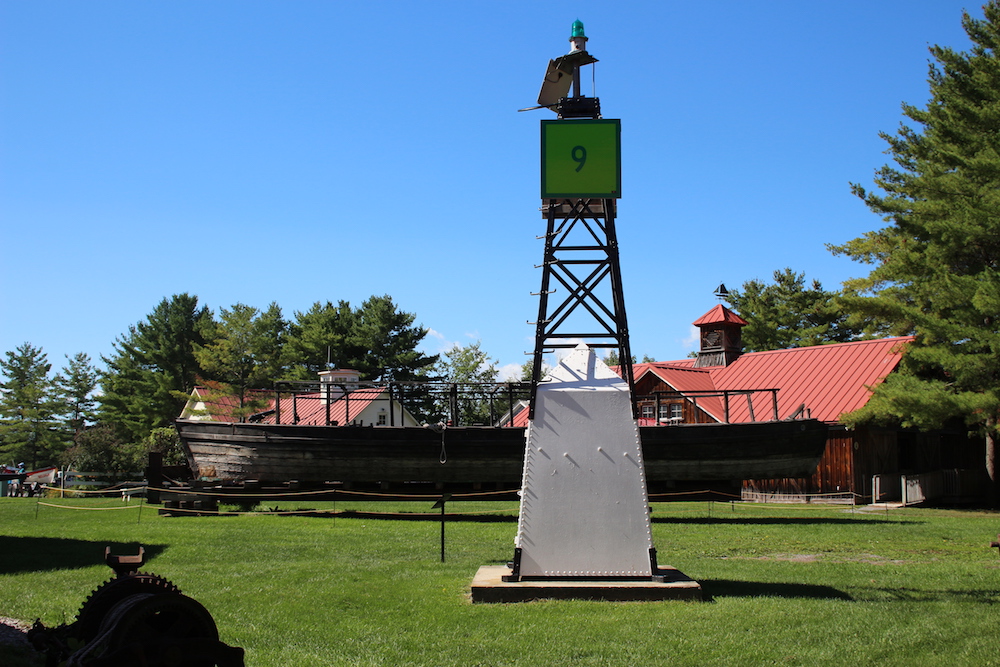
Maritime History Around Campus
Take a walk around our 3-acre campus and keep an eye out to discover unique maritime objects and landmarks from Lake Champlain including a light tower and the replica Revolutionary War gunboat, Philadelphia II.
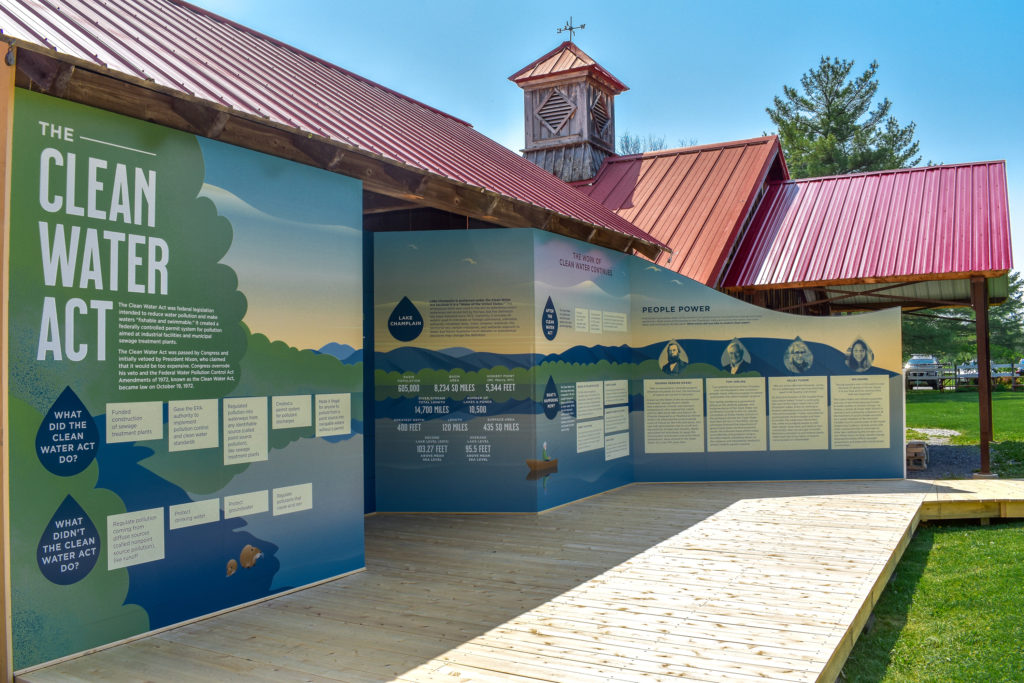
The Clean Water Act
Mark the 50th anniversary of the Clean Water Act in this exhibit about the history of the Clean Water Act, key parts to know about this federal legislature, how it relates to Lake Champlain, and locals who continue the fight for clean water. This exhibit is also available as an online exhibit.

18th Century Blacksmith Forge: Iron & Lake Champlain
Learn about the tremendous impact of iron in the Champlain Valley and the critical role of blacksmiths in our replica 18th Century Forge, originally built to supply hardware for our replica boats.
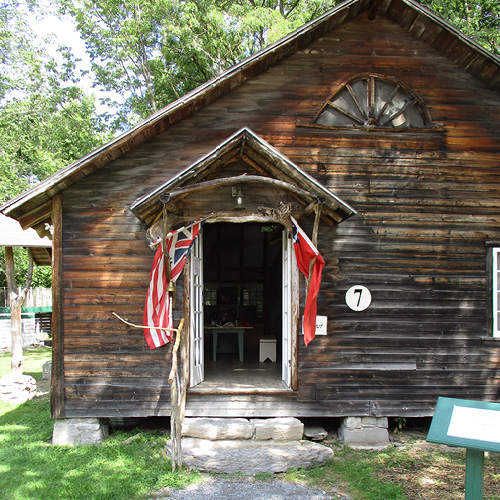
The Roost
Step back in time in this historic Adirondack-style cabin that was built for Camp Marbury, a local girls camp popular from the 1920s to 1940s. Honoring its roots, today this building is also an active kids’ space with hands-on activities and the home base for our summer camps.
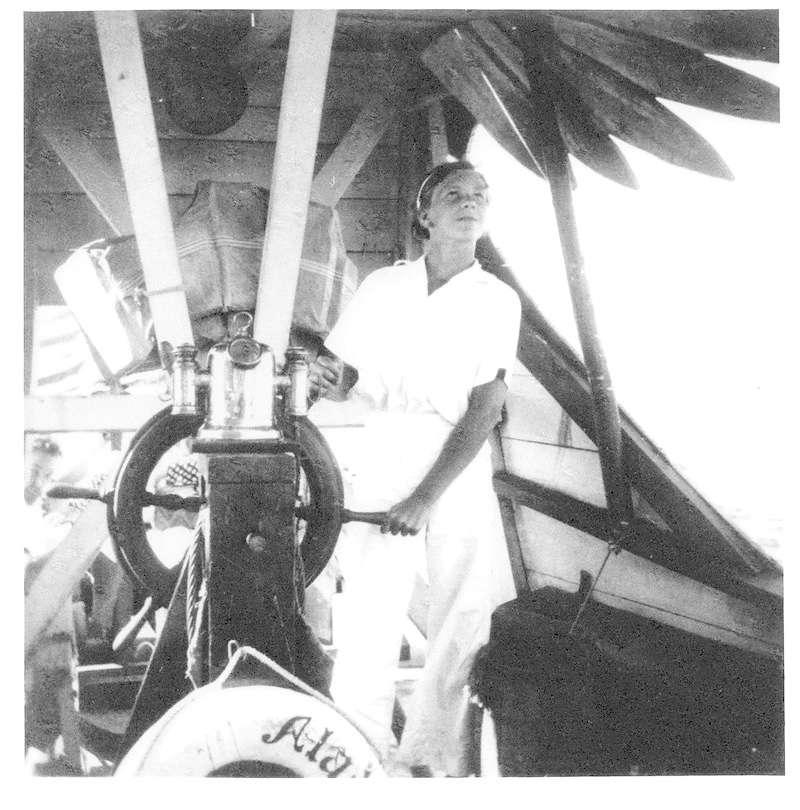
S.S. Aladdin: A Summer Camp Adventure
Travel through time to the summer camps of days past! “Step aboard” and into this special exhibit space dedicated to the Aladdin, an adventure ship built and sailed on Lake Champlain by summer campers at Camp Dingley Dell from 1928 to 1939. This exhibit is housed in the Roost.
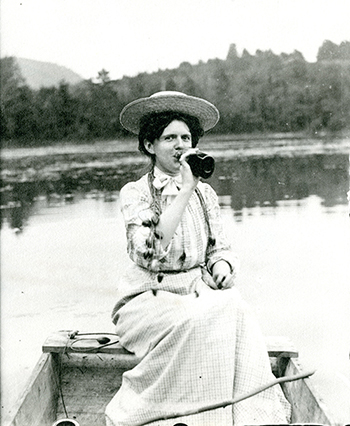
The Noble Failure: Prohibition in the Champlain Valley
Explore the complex relationship between government, society, and individuals over time during the era of Prohibition. On display at the Lakeside Outdoor Gallery next to the Roost and also available as an online exhibit.

Lake Health
How can we keep Lake Champlain healthy? Dig deeper into environmental and man-made threats to the lake and what actions we can take to make a difference. On display at North Harbor.
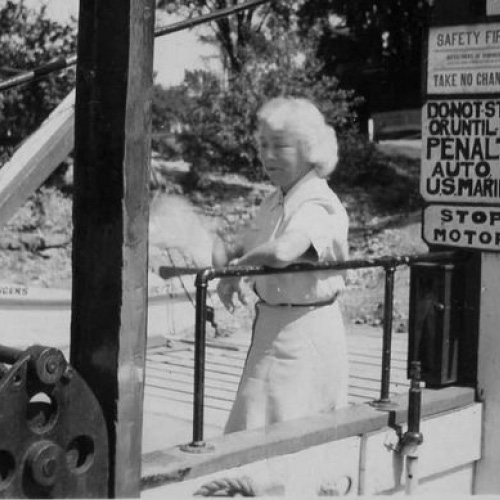
Women at the Helm
An outside exhibit celebrating women leaders of the Champlain Valley from the 18th century to today. On display at the Courtyard Outdoor Galley in front of Hazelett Small Watercraft Center and also available as an online exhibit.
The majority of the museum’s objects, research resources, works of art, and images that you will see on display and that are in our collections storage, have been given to the Museum, often after passing through several generations of local families, or as gifts from people and organizations who are eager to support the museum’s work.

